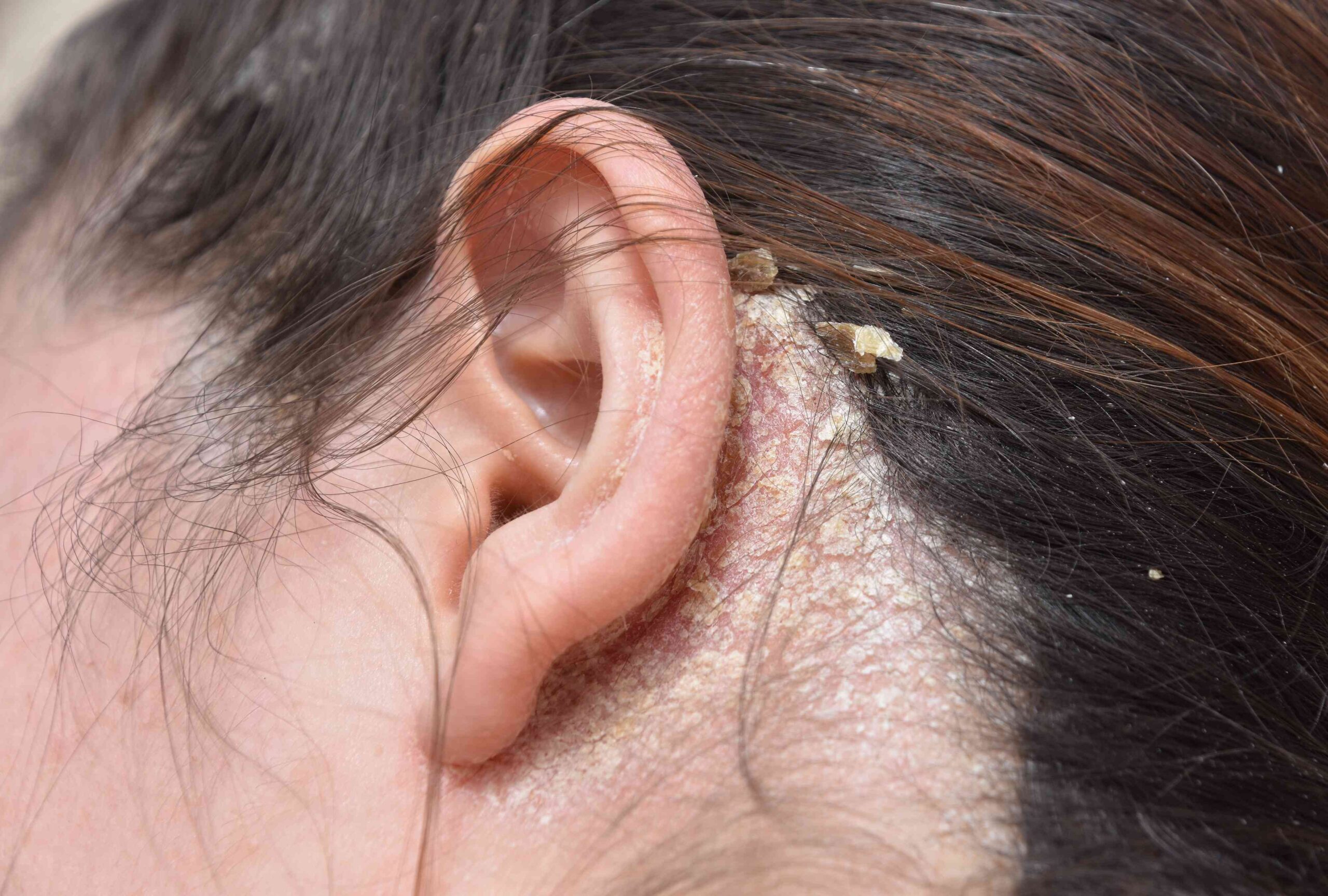
What is Seborrheic Dermatitis?
Common Causes and Triggers
Seborrheic Dermatitis occurs when there is an overgrowth of a yeast-like fungus called Malassezia on the skin, combined with excessive sebum (oil) production and inflammation.
Common contributing factors include:
Oily skin or scalp
Stress or fatigue
Weather changes (especially cold, dry air)
Hormonal changes
Certain medical conditions (like Parkinson’s disease or weakened immunity)
Improper skincare or harsh hair products
Our experts carefully analyze your skin type, scalp condition, and lifestyle to identify what’s triggering your flare-ups. This helps design a treatment plan that addresses the root cause, not just the symptoms.
Signs and Symptoms
Seborrheic Dermatitis can appear differently based on where it develops, but the most common symptoms include:
Itchy, red, or inflamed skin
White or yellowish flakes (dandruff) on the scalp
Greasy patches on the face, especially around the nose, eyebrows, or ears
Scaly rashes on the chest, back, or hairline
Crusting or oozing in severe cases
If you notice these symptoms persisting despite using over-the-counter products, it’s time to consult a dermatologist for a customized Seborrheic Dermatitis treatment plan.
Personalized Treatment Approach
At our clinic, we believe every skin type deserves an individualized solution. Seborrheic Dermatitis varies in severity, and what works for one person may not work for another. Our dermatologists follow a comprehensive, step-by-step approach to control symptoms, reduce inflammation, and restore healthy skin.
1. Clinical Evaluation
Your consultation begins with a detailed skin and scalp examination. The dermatologist assesses the pattern, severity, and frequency of flare-ups. In some cases, additional tests may be performed to rule out fungal infections or psoriasis.
2. Scalp and Skin Care Regimen
We recommend a tailored routine using dermatologist-approved shampoos and cleansers that help control Malassezia growth. Medicated shampoos containing ketoconazole, selenium sulfide, zinc pyrithione, or salicylic acid are often prescribed for scalp involvement. For facial or body lesions, mild cleansers and non-comedogenic moisturizers help soothe irritation.
3. Topical Treatments
Our dermatologists may prescribe anti-fungal creams, corticosteroid lotions, or calcineurin inhibitors depending on the affected area. These reduce redness, scaling, and inflammation without damaging the skin barrier.
4. Advanced Therapies
For resistant or chronic cases, we offer advanced options such as:
Phototherapy (light-based treatment) – helps reduce inflammation and control fungal growth.
Platelet-Rich Plasma (PRP) therapy for scalp Seborrheic Dermatitis to promote healing and restore scalp health.
Medicated scalp peels – gently remove flakes and unclog oil glands to allow better penetration of treatment products.
5. Lifestyle and Maintenance Care
Seborrheic Dermatitis can’t always be cured permanently, but it can be effectively managed. We focus on long-term maintenance with balanced diet guidance, stress management techniques, and appropriate skincare routines to prevent recurrence.
Why Choose Our Clinic for Seborrheic Dermatitis Treatment?
Experienced Dermatologists: Our team specializes in treating chronic skin and scalp conditions using evidence-based medicine.
Tailored for Indian Skin: Every treatment is designed keeping in mind the unique needs and sensitivity of Indian skin and hair types.
Holistic Approach: We address internal and external factors — from stress and hormones to nutrition and skincare habits.
Latest Technology: Our clinic is equipped with advanced diagnostic and treatment tools, ensuring effective and safe results.
Comprehensive Care: From scalp treatments to facial management, we cover all affected areas to achieve lasting relief.
At-Home Care Tips for Managing Seborrheic Dermatitis
While professional treatment is essential, consistent home care can help keep symptoms in check. Our dermatologists often recommend the following:
Use mild, medicated shampoo 2–3 times a week.
Avoid scratching or picking at flakes.
Keep your scalp and face clean, but not overly dry.
Use non-oily, fragrance-free moisturizers.
Manage stress through yoga, meditation, or regular exercise.
Eat a balanced diet rich in zinc, omega-3s, and antioxidants.
Consistency is key — following your dermatologist’s advice and routine care helps prevent flare-ups and keeps your skin healthy.
